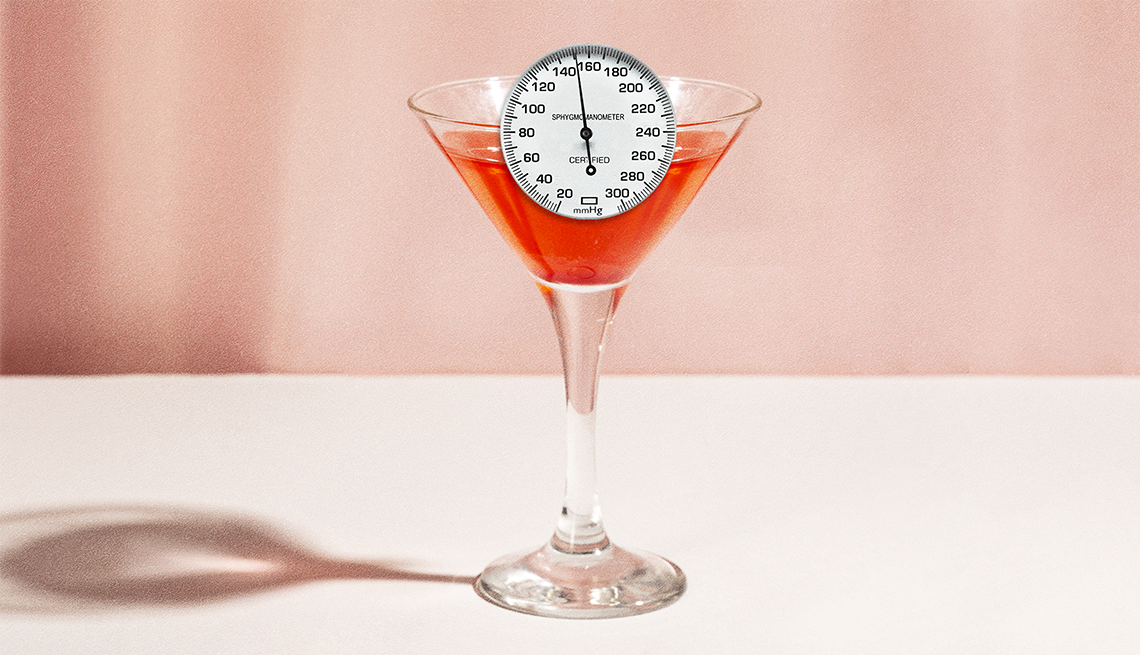Introduction
Alcohol consumption is a widespread social and cultural practice around the world. While moderate drinking is often viewed as acceptable—and sometimes even linked to certain health benefits—its relationship with blood pressure is complex. Excessive or frequent alcohol intake is a known risk factor for hypertension (high blood pressure), which increases the risk of heart disease, stroke, and kidney problems.
Understanding how alcohol affects blood pressure, what constitutes safe drinking levels, and strategies to balance enjoyment with health is critical for anyone concerned about cardiovascular well-being.
This article explores the impact of alcohol on blood pressure, guidelines for safe consumption, and tips for maintaining heart health without giving up social pleasures.
How Alcohol Affects Blood Pressure
Short-Term Effects
Alcohol can cause a temporary spike in blood pressure shortly after consumption due to its stimulant effects on the nervous system. This spike can last for hours and, if drinking is frequent, may lead to sustained high blood pressure.
Long-Term Effects
Chronic heavy drinking can cause:
- Persistent hypertension due to increased sympathetic nervous system activity.
- Damage to blood vessels and the heart muscle.
- Disruption of hormone systems that regulate blood pressure and fluid balance.
- Increased risk of weight gain and metabolic syndrome, which indirectly worsens blood pressure.
What Is Moderate Drinking?
Health authorities define moderate drinking as:
- Up to 1 standard drink per day for women.
- Up to 2 standard drinks per day for men.
A standard drink is roughly:
- 12 ounces of beer (5% alcohol)
- 5 ounces of wine (12% alcohol)
- 1.5 ounces of distilled spirits (40% alcohol)
Sticking to these limits is associated with a lower risk of developing hypertension.
Risks of Excessive Alcohol Consumption
Drinking beyond moderate levels increases blood pressure risk:
- Binge drinking (4+ drinks for women, 5+ for men on a single occasion) causes dramatic BP spikes.
- Heavy drinkers are more likely to develop resistant hypertension, which is difficult to control with medication.
- Alcohol abuse can lead to liver damage, which further disrupts blood pressure regulation.
Is There Any Benefit to Moderate Alcohol Intake?
Some studies suggest that moderate alcohol consumption, especially red wine, might have heart benefits due to antioxidants like resveratrol. However:
- These benefits do not outweigh the risks for everyone.
- Non-drinkers are not advised to start drinking for heart health.
- The safest approach is moderation and an overall healthy lifestyle.
Tips for Drinking Safely with High Blood Pressure
1. Know Your Limits
Stick to recommended moderate drinking guidelines or avoid alcohol if advised by your doctor.
2. Monitor Your Blood Pressure
Track your blood pressure regularly, especially if you drink alcohol. Notice any spikes or changes.
3. Avoid Binge Drinking
Space out drinks and avoid consuming large amounts quickly.
4. Choose Lower-Alcohol Options
Opt for drinks with lower alcohol content or dilute spirits with mixers.
5. Stay Hydrated
Drink water alongside alcoholic beverages to reduce dehydration and its effects on blood pressure.
6. Pair Alcohol with Food
Eating slows alcohol absorption and can mitigate blood pressure spikes.
Alternatives to Alcohol
If you want to reduce alcohol consumption but still enjoy social occasions:
- Try mocktails or alcohol-free beverages.
- Opt for herbal teas, sparkling water with lemon, or kombucha.
- Engage in social activities that don’t center on drinking.
When to Avoid Alcohol Completely
- If you have uncontrolled high blood pressure.
- If you are taking medications that interact negatively with alcohol.
- If you have a history of alcohol dependence or liver disease.
- During pregnancy or if planning to become pregnant.
How Alcohol Interacts with Blood Pressure Medications
Alcohol can interfere with many antihypertensive drugs, either increasing side effects (like dizziness) or reducing effectiveness. Always discuss alcohol use openly with your healthcare provider.
Conclusion
Alcohol can be enjoyed safely by many adults, but its impact on blood pressure cannot be overlooked. Moderation is key—sticking to recommended limits helps minimize risk, while excessive drinking increases the likelihood of hypertension and related health problems.
Balancing enjoyment and health means making informed choices, monitoring your blood pressure, and knowing when to avoid alcohol altogether. For those with hypertension or cardiovascular risks, the safest path is often to limit or abstain from drinking.
By understanding the alcohol-blood pressure connection, you can find your safe balance and protect your heart without missing out on life’s social moments.
FAQs:
1. How does alcohol affect blood pressure?
Alcohol can temporarily raise blood pressure and, with excessive drinking, cause long-term hypertension.
2. What is considered moderate drinking?
Up to 1 drink per day for women and 2 drinks per day for men.
3. Can moderate alcohol consumption be good for the heart?
Some studies suggest benefits, but non-drinkers shouldn’t start drinking for health reasons.
4. Should people with high blood pressure avoid alcohol?
They should limit or avoid alcohol, especially if blood pressure is uncontrolled or medications are involved.
5. Can alcohol interfere with blood pressure medications?
Yes, alcohol can reduce the effectiveness and increase the side effects of some blood pressure drugs.






